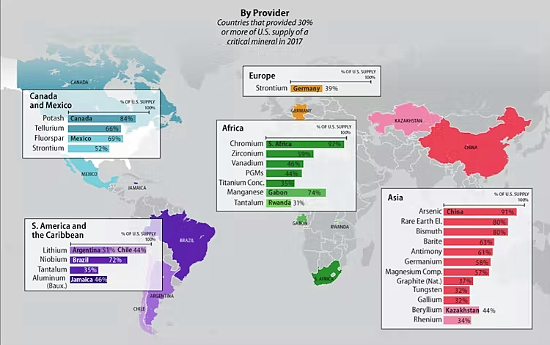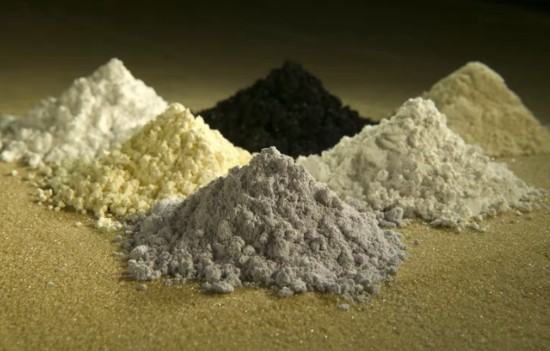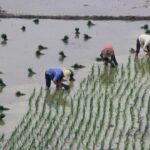Jane Marsh tackles the supply side of the renewable energy transition in her latest contribution to 21st Century Tech Blog. Jane is an environmental journalist and the Editor-in-Chief of Environment.co. Her interests focus on environmental issues, sustainability and renewable energy. She has written for Renewable Energy Magazine, Manufacturing.net, and Nation of Change. This is her sixth contribution to this blog site. As always your comments are welcomed.
To harness the energy of the sun, rushing water and billowing wind, clean energy technology relies on an array of minerals. Cobalt, lithium and nickel are just a few of the critical elements needed to build electric vehicles and power batteries. Others include rare earth minerals, graphite, graphene, and indium. All of these are important materials in manufacturing renewable energy technologies. And as the world moves away from fossil fuels, forecasters see demand for them increasing by 500% over the next three decades.
Production and processing, therefore, are ramping up across the globe (see the map below), but not all operators are ethical and a number of countries where these minerals can be found are corrupt, unstable and problematic. Currently, the U.S., Canada, European Union and allies find themselves competing principally with China in finding and securing critical supplies of these minerals to ensure the low-carbon energy transition to renewables happens without destabilizing interruptions.
With Production Comes Corruption and Environmental Degradation
In the U.S., the current administration is meeting critical mineral demand by increasing domestic mining and implementing recycling programs. Current domestic supply, however, is trailing China with its domestic production and investments that the People’s Republic has made in Africa and South Asia. The map below shows the origin of critical minerals used by U.S. companies.

While the production and processing of these critical minerals may lead to a boom in economic growth and job creation, there are also violations of environmental, human rights and labour standards, along with a lack of global transparency or cooperation. Poor working conditions, low pay, and lax safety standards make the job of harvesting these minerals incredibly dangerous. For communities living near mining sites, environmental degradation is leading to erosion with massive sinkholes swallowing up the land. Air and water quality are being affected. So although critical minerals are meant to create a greener and cleaner world, their production in many places is causing irreparable damage to the land and people living in these mining centres.
U.S. Domestic Production Initiatives
The U.S. is currently ramping up domestic production. At the same time, recycling programs are being initiated to build a national strategic stockpile of a wide range of critical minerals to support domestic production. The government is facilitating dialogue between mining companies exploring new critical mineral sources with the communities where their operations could potentially disrupt the land or way of life. The U.S. has provisions for landowners regarding underlying mineral rights, and the Environmental Protection Agency and Department of the Interior have revised regulations related to sustainable, safe, and ethical mining practices and corporate accountability.
Global Transparency and Accountability
Outside the U.S., it is more difficult to implement a global standard for sustainable and ethical mining practices. Recently, the U.S. Strategy on Countering Corruption has been established to hold international players in the mining industry to account. With established rules and consequences clearly outlined and monitored, it will be more difficult for corrupt foreign mining operations to continue unhindered.
The U.S. is also working with international partners in establishing sanctions to apply against corrupt and abusive practices in mining operations beyond their jurisdictions. One example can be found in the Democratic Republic of the Congo (DRC), where mining tycoon Dan Gertler has been cited for violating human rights standards. The application of sanctions against Gertler’s operations and production should have a significant impact on his operations although China may continue to harvest critical minerals from the DRC.
Paving a Path to Cleaner More Sustainable Global Practices
Addressing climate change requires a global response. Rapid growth in renewable energy and storage technologies is seen as the way forward. That’s why global leadership needs to address not just supply but also where and how minerals are harvested and that consideration for the treatment of people and the environment is front and centre when finding and tapping into these critical resources. Without transparency and accountability, violations and abuses like those happening in the DRC will continue and even grow in number.









